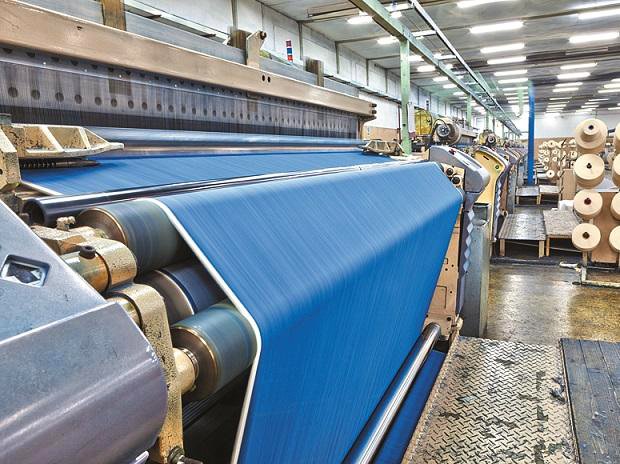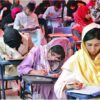As Pakistan’s economy transits from one crisis to the other, The Truth International sat down with leading economist and expert Dr. Ashfaque Hasan Khan. Dr. Khan is currently serving as the Principal and Dean of the School of Social Sciences and Humanities at NUST and has also been part of PM Khan’s economic advisory council amongst several other key government positions that he has held previously, the Economic Advisor in Ministry of Finance, Pakistan.
In the current scenario, what do you think are the most pressing economic concerns of Pakistan?
I believe Pakistan suffers from four major economic challenges. These include slowed real economic activity, higher budget deficit, balance of payment as well as debt crisis. There is also an additional minor challenge that I would term the current power sector issue or more specifically the circular debt. Going into greater detail, I feel that Pakistan’s real economic activity has slowed down considerably in the past couple of years.
For a country like Pakistan where 1.2 million youngsters enter the job market annually, it needs to have approximately 6-7% growth per annum. However, with the current rate of growth, we are creating an endless pool of unemployed people. Just in the past 12 years, our economy has slowed by close to 3% per annum and in the past 2 years particularly, the average economic growth has been 0.75% which is exasperating to witness.
With slowed economic activity, naturally a rise in unemployment and poverty will be observed which continues to rise over the years. What is oft overlooked in mentioning is that Pakistan’s living standards have remained stagnant around 1% since 2008-09 whilst inflation has remained extremely high. This places immense pressure on the low-income category of people. Similarly, if we are to glance around to other Asian developing nations, our fiscal deficit is far higher than theirs’.
Similarly, if we are to look at the exchange rate, there has been massive devaluation. A single rupee worth of devaluation means approximately 100 billion rupees additional public debt. With devaluation on the one hand and high interest rates on the other causing around 160 billion additional interest payment per 1% hike, the total expenditure continues to go up. In this government alone, interest rate was raised from 6% to 13%. When the Prime Minister exclaims that interest payment covers half the expenditure, he is right.
But who else is to blame if not the current government? Who devalued the currency? Who raised interest rates? It was the present government under the IMF program. What we must answer now is whether this program is in fact benefiting Pakistan or damaging it?
Do you really believe that the IMF has failed to revive Pakistan’s economy? Why does Pakistan continue to revert to the Fund if it truly has failed?
In my humble opinion, it is truly hurting Pakistan. Not only has it slowed down economic activity but it has also raised poverty standards and drowned Pakistan in immense debt which is typical of the IMF. To add to that, we have the NFC award which I feel will never allow Pakistan to achieve financial stability. There are far too many manufacturing defects built into the NFC which need to be addressed, otherwise we will lurch from one crisis to the other.
Another great problem that Pakistan suffers from is the balance of payment crisis which is also why Pakistan was brought into the fold of the IMF. When this particular government came into power, they inherited a large current account deficit and Pakistan needed approximately $30 billion. Why did we face this crisis, you may ask? This crisis peaked in 2017-18 and it was primarily due to an extraordinary growth in imports due to CPEC related products while a surge was seen in non-essential imports. On the other hand, our exports remained stagnant, which raised the trade gap. And the government felt there was no option but to resort to the IMF.
Why do you think Pakistan has been unable to raise its level of exports in the past few years?
This problem has persisted for years. The previous government withheld refunds and rebates of the exporters and with senseless taxation to meet IMF targets, the cost of business rose considerably. Additionally, the government raised electricity and gas prices leading to a lack of competitiveness in the international market.
Looking at Pakistan’s exports, there are basically two ways they may increase. One is the price effect where you fundamentally export the same quantity of goods but because of higher prices, the monetary value goes up. The other is the quantity effect through which the number of goods sold actually rises. As per empirical evidence, in the past two and a half years, our exports rose by $380 million due to price effect whereas the quantity effect merely shows a rise of $280 million. Meaning the net effect is only about $100 million, which is neither because of government policies nor due to the efforts of Razzaq Dawood (Federal Minister of Trade & Commerce).
Similarly, during Christmas and New Year’s in Europe and North America, buyers placed orders for Indian textile but due to the COVID crisis in India, factories were closed so they were unable to meet those demands. As a result, since our industries were already open (due to low Covid), trade was diverted to Pakistani textile mills. But is this sustainable? Definitely not. Because once the factories open back up in India, our exports will fall drastically because we have failed to create trade in this arena.
Another problem you mentioned was the debt crisis, could you elaborate upon that?
In Pakistan, the debt problem originates from persistence of large current account and budget deficits. As debt rises, so too does its payment. We have also been consistently borrowing to build our foreign exchange reserves and perhaps, our greatest problem lies in the fact that we borrow with pride and pleasures. Headlines in the newspapers are stamped such that our ministers and leadership flaunt it with pride. We believe it manifests the confidence of the international community or at least that is what we explain to the public. But the fact of the matter is that we have our priorities set all wrong which shows a very sad state of affairs.
Looking back in time, there are certain periods where debt accumulation was rampant. Dr. Ishrat Hussain terms the nineties the lost decade while I believe the decade from 2008 to 2018 was also a lost decade because we added a cumulative of $73 billion in debt in just these two decades, meaning more than 3/4th of our total debt. What were the commonalities, you may ask? ‘Baari Baari (turn by turn) regimes’ and the IMF program. With the third party now also joining the same league, we are in for some more trouble.
Would you attribute the failures on the economic fronts to COVID at all?
The pandemic did affect the entire globe including Pakistan and approximately 80% of the world’s economies faced negative growth. However, I believe Pakistan has actually benefited immensely from the coronavirus and that is a shocking fact, which has not been brought to Pakistan’s notice. While our economy did contract, because of the suspension of the IMF program, all kinds of prices were lowered, including electricity and gas, which was previously always on the rise due to IMF targets.
Similarly, interest rate was lowered and it declined to 7% whereas no further devaluation of the currency took place. This attracted the private investors and they drew confidence as they felt Pakistan’s economic policy was finally predictable. On the other hand, the trade diversion I previously talked about was also due to COVID. Because China and India were ravaged quite severely by the pandemic and Pakistan was not, we were able to pick up our exports. That is not all. Due to the oil crisis in the international market, we were able to lower our import bill by $5 billion and with debt relief amounting to $2.5 billion from the G-20, we were able to secure a handsome relief package. However, now that we have resumed the IMF program, all the gains we were able to make are slowly dissipating which needs to be stopped.
What is the way forward out of this economic mess that we have created?
In my view, Pakistan has committed a massive blunder by going back to the IMF but for our credibility, we must revive and complete this program. However, the Pakistani authorities must ensure that no further devaluation or hike in interest rate should takes place. In fact, I believe the State Bank should reduce the discount rate to 5% through two or three monetary announcements.
Electricity tariff has already been increased but we must understand that this is not the solution. It only strengthens the status quo. What we truly need is reforms in all sectors including power, agriculture, industry, tax, governance etc. If we resort to hiking up prices, it is merely a defeatist approach and one that will prove unsuccessful. We need to address the root cause and then fine tune the process. Our industry has gained some momentum, let this continue and grow strength.
There are several great things that the government has been up to but because of a failed communication strategy, the public is unaware. With a shy Hafeez Sheikh as minister, the public will not know. While Hammad Azhar is a good man, he is a barrister and not an economist. The government requires a spokesperson who is well versed in economy to be able to communicate to the public.
Moreover, the Prime Minister must engage regularly with the public because he is from the people and they have elected him. Unfortunately, he has confined himself to the Prime Minister house and his own residence in Bani Gala. But he must now address the public regularly. It is time that he goes about the country and galvanizes the people if he is to truly revive the fire that he once ignited.










